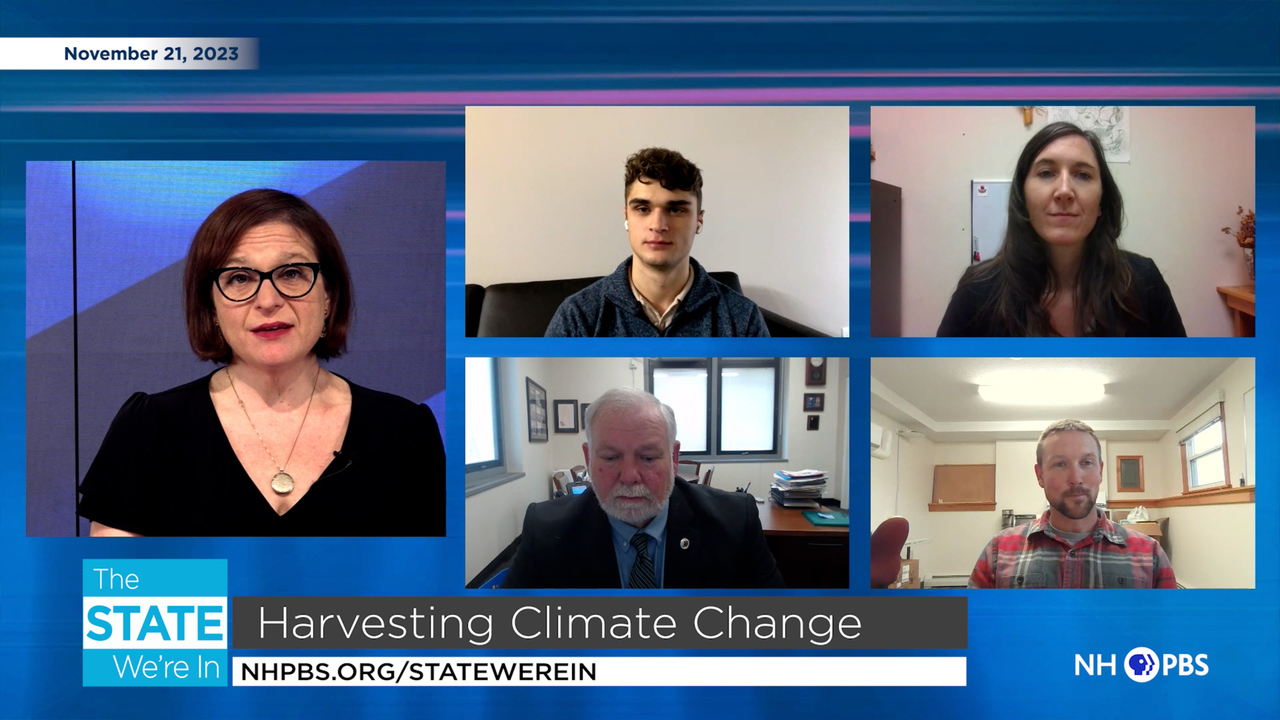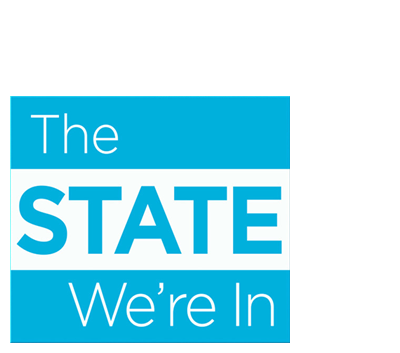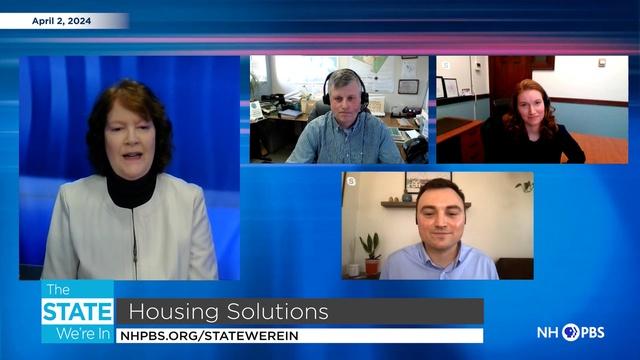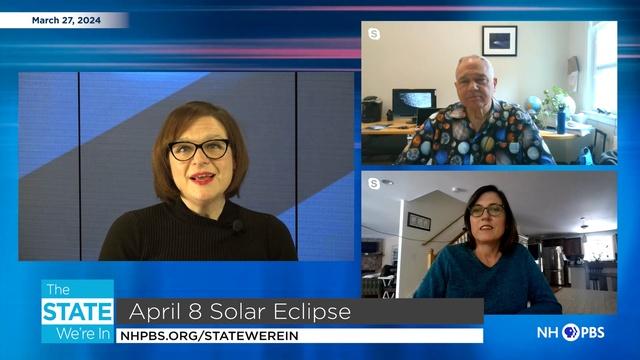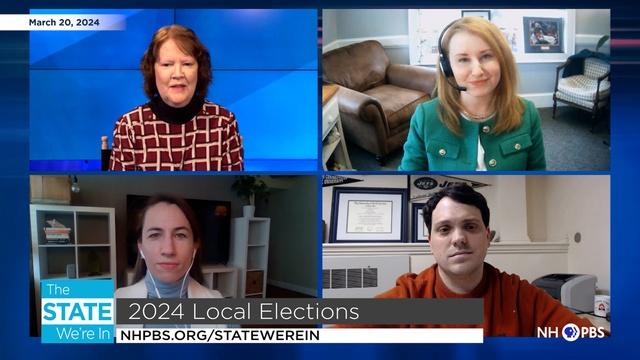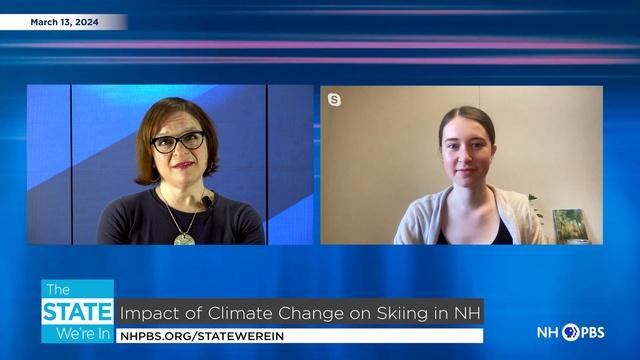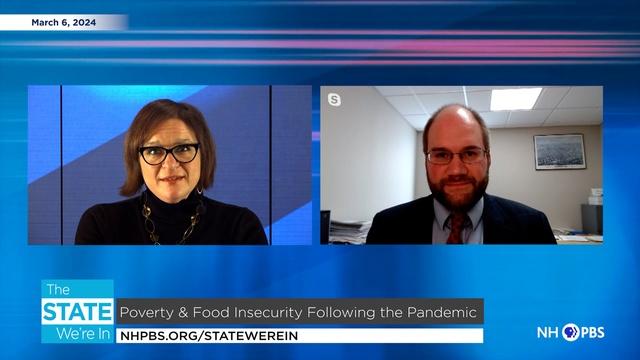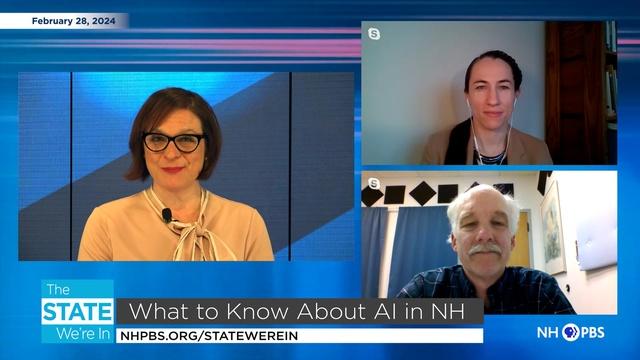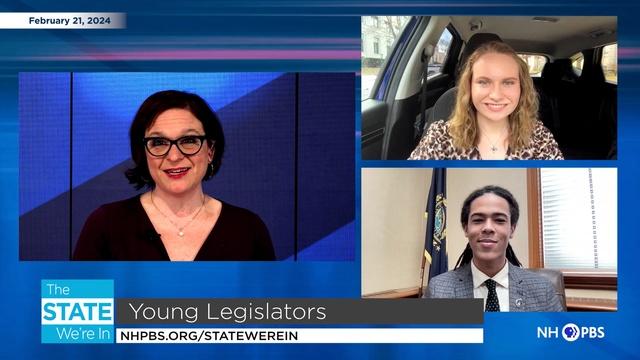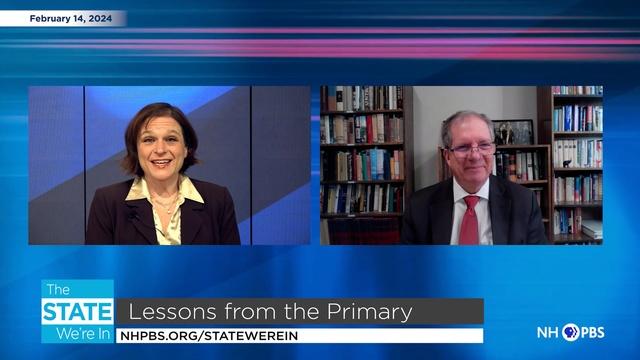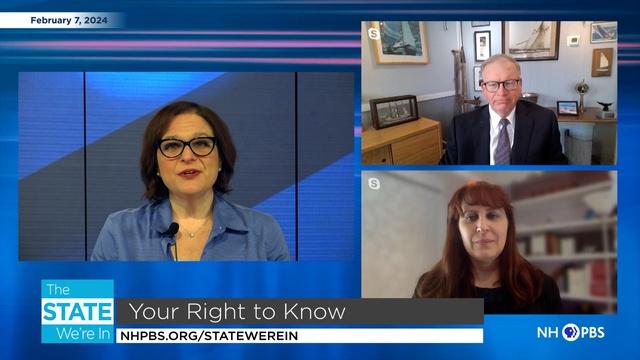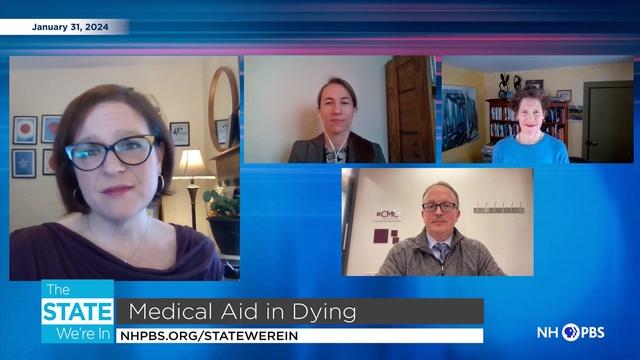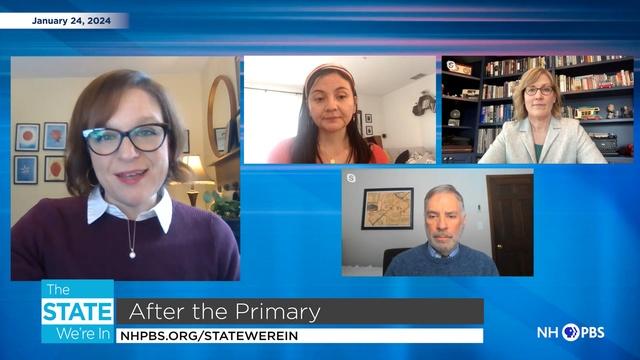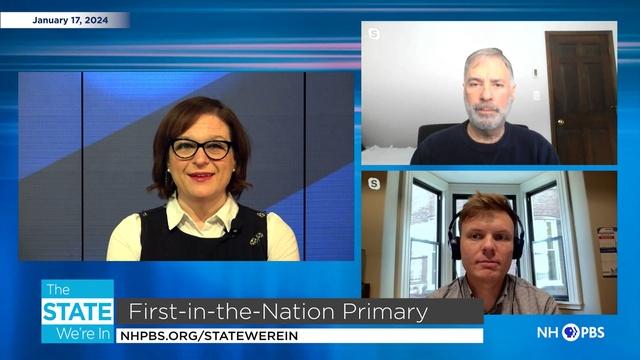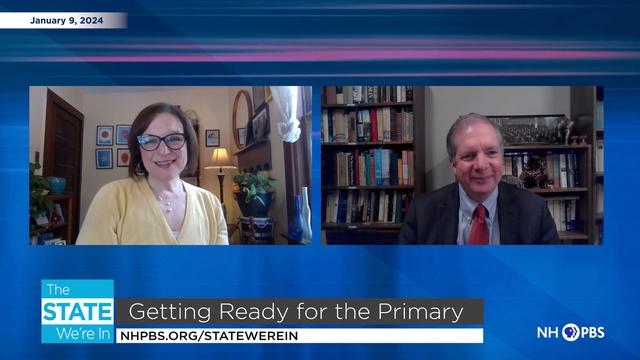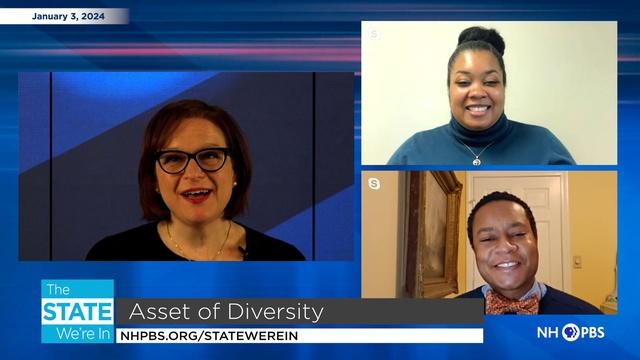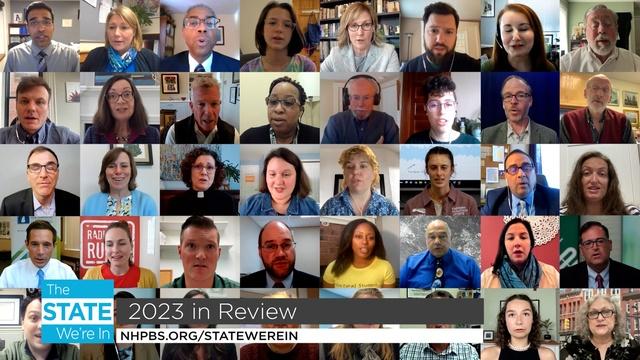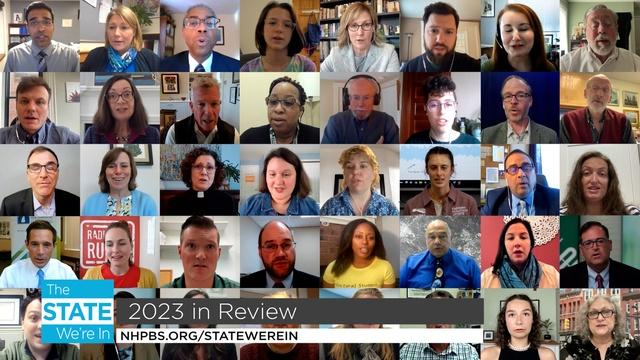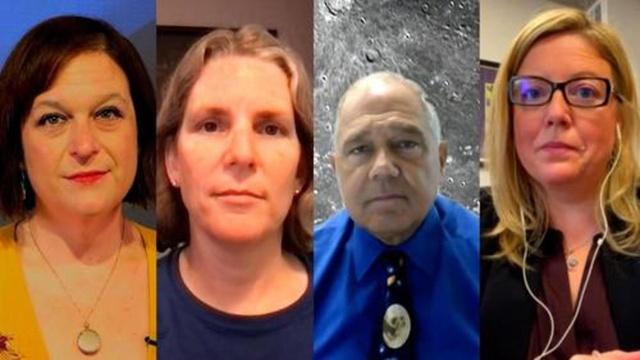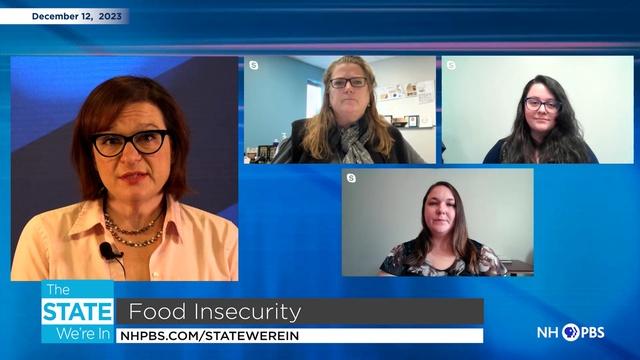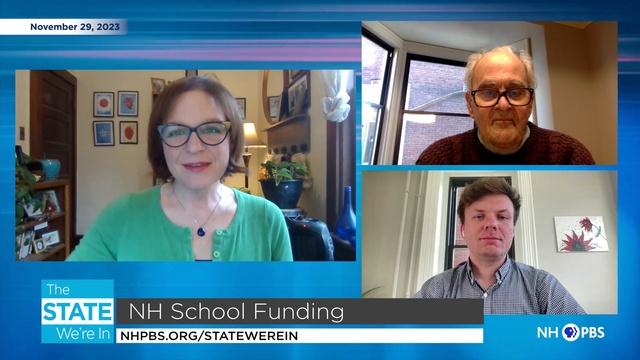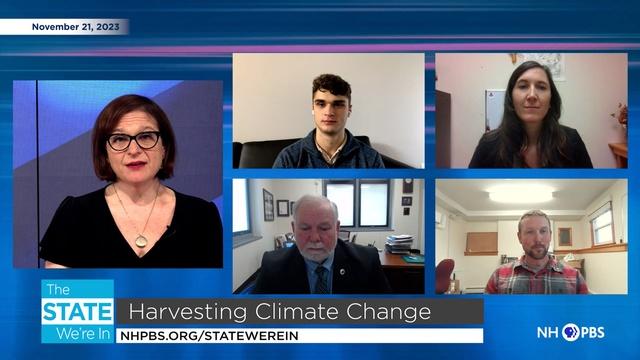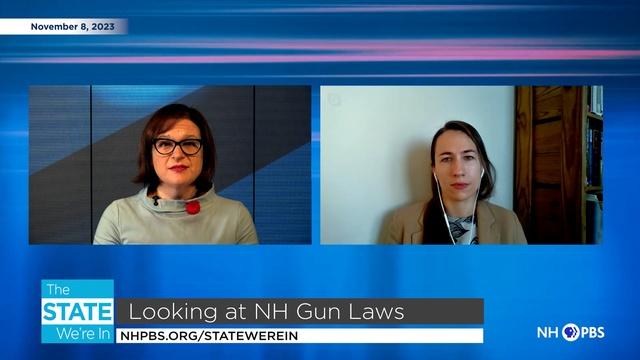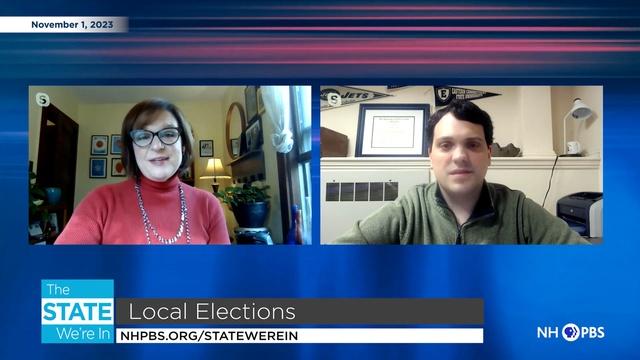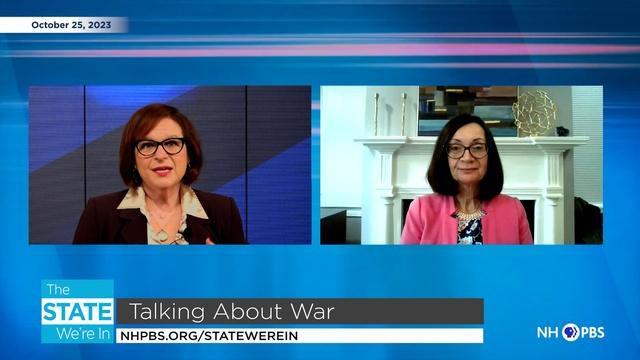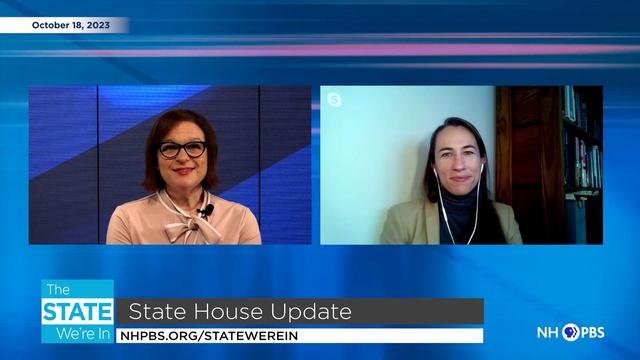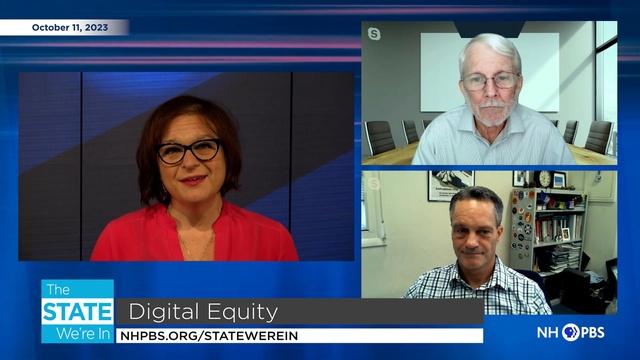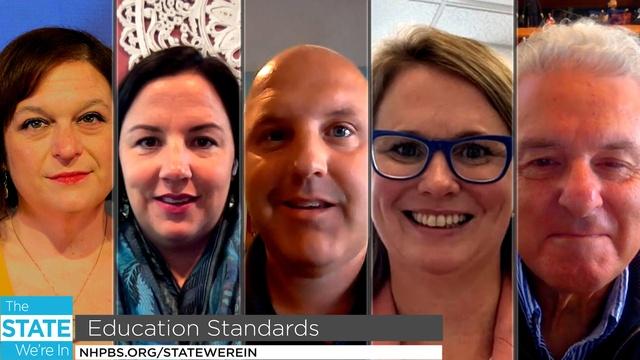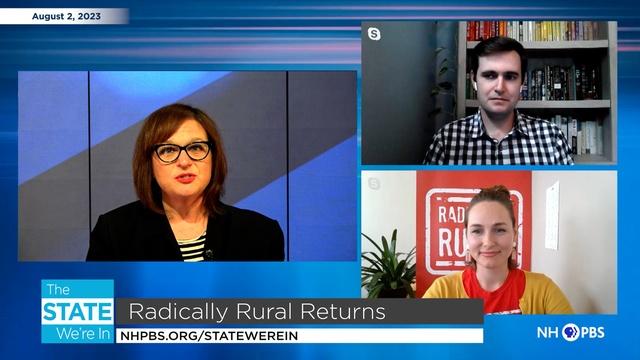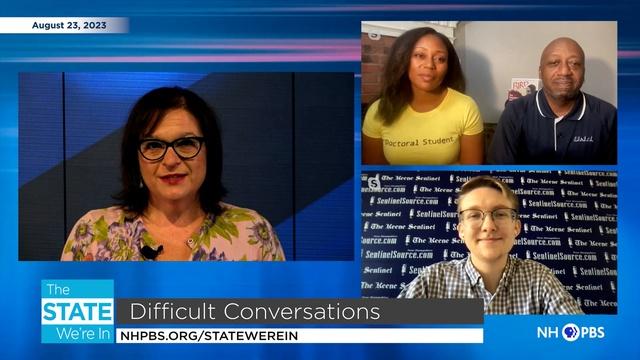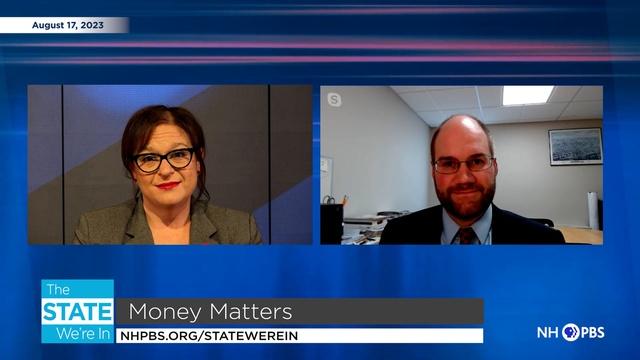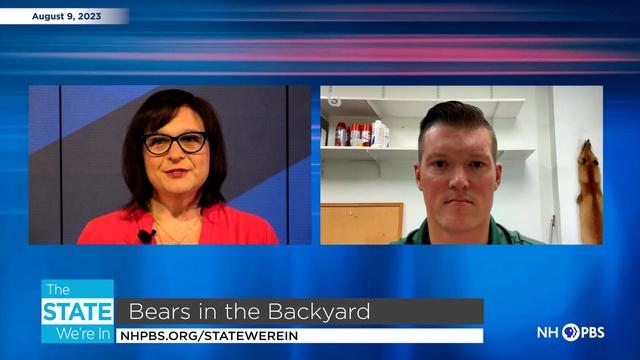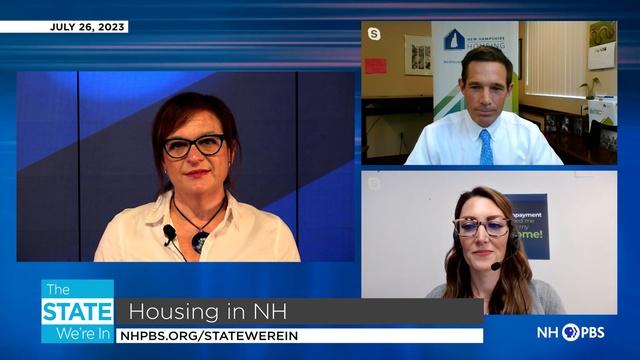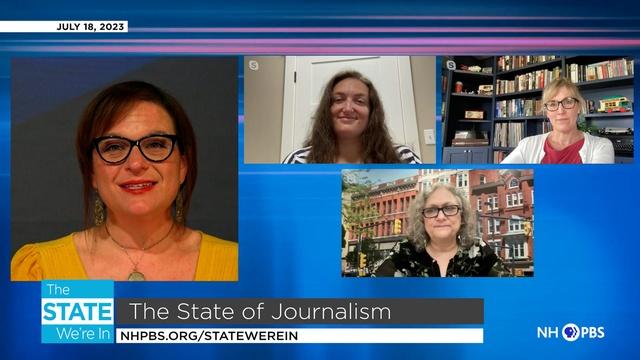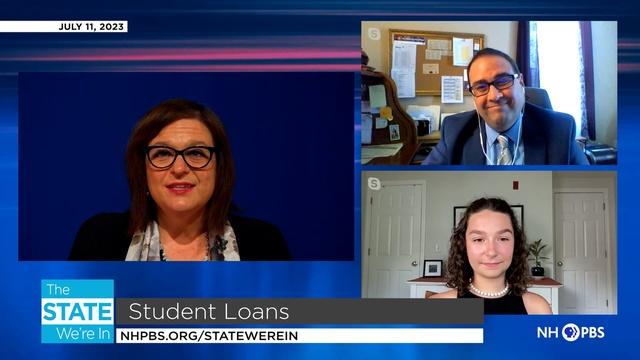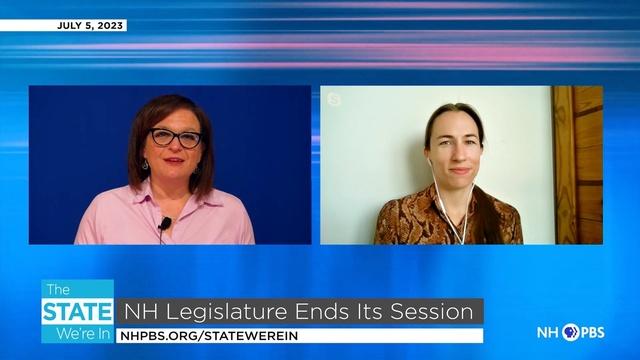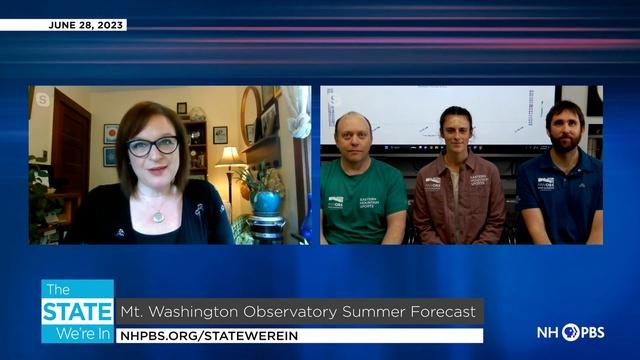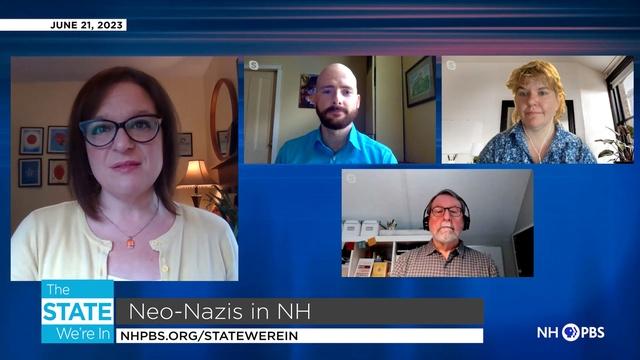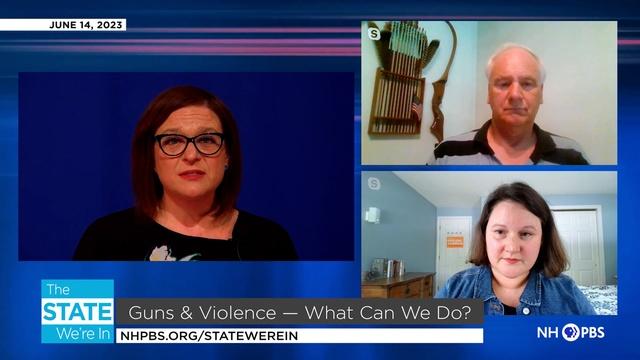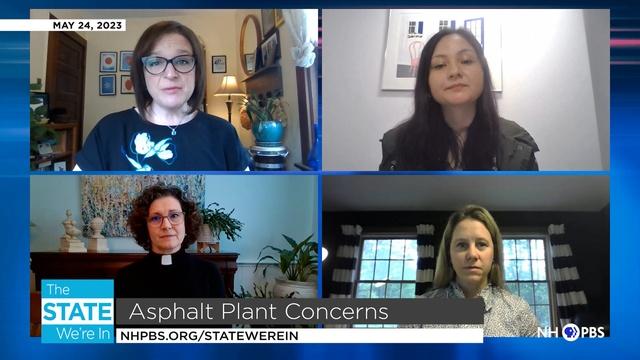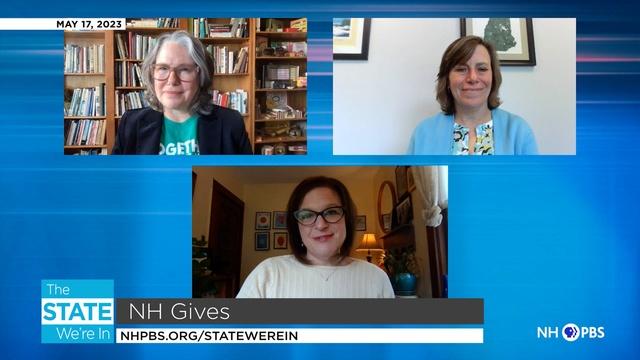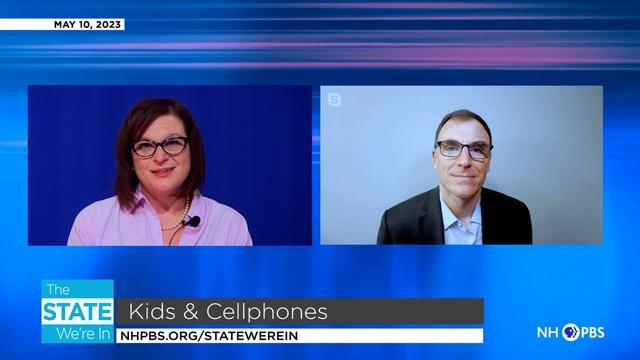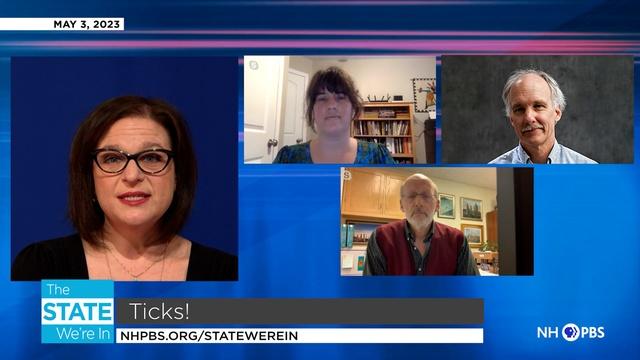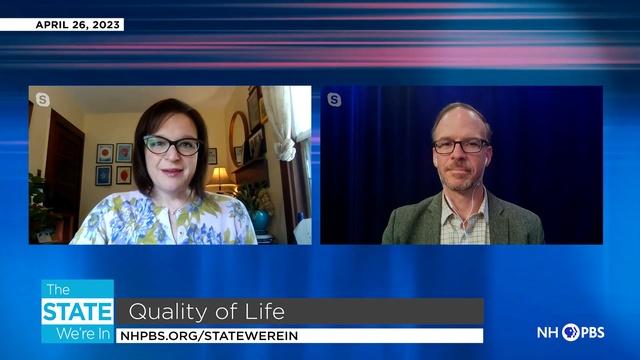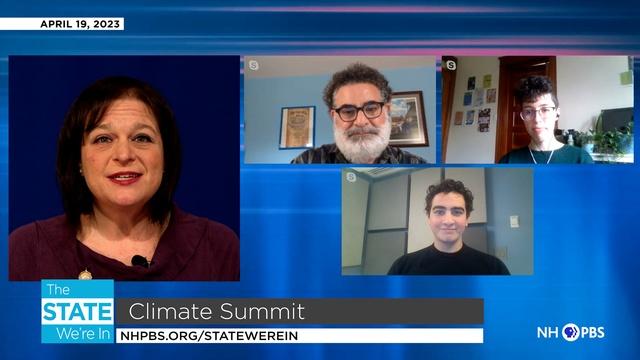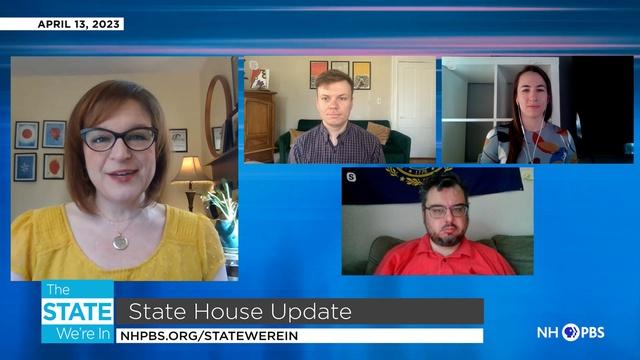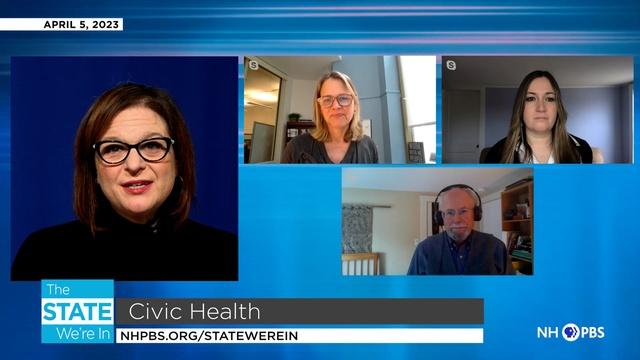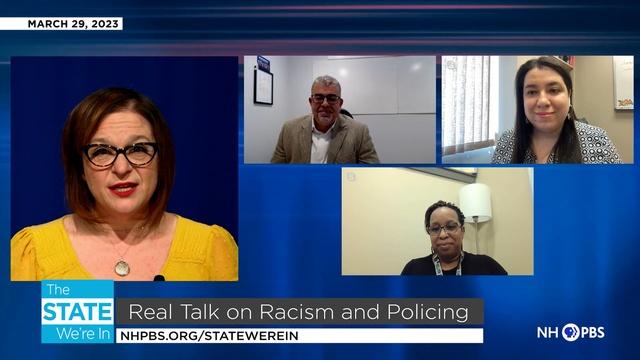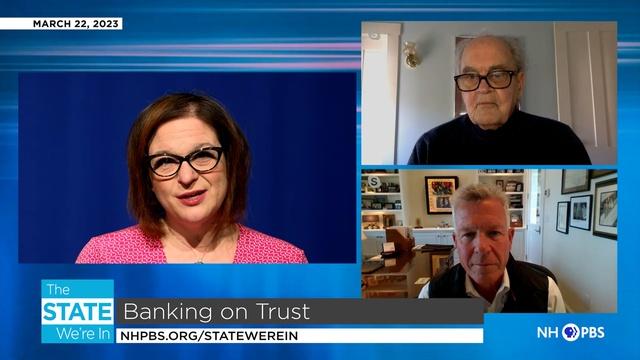Climate Change and the 2023 NH Harvest
Local farms struggle to adapt to extreme weather
Since the mid-’60s, second-generation farmer Kathy Sherman of Sherman Farms in Conway has noticed warmer winters, extreme rain events, longer periods of drought, earlier spring thaws and later fall frosts.
In early May this year, after years of drought, heavy rains submerged the farm’s fields, washing away the nutrients necessary for a successful harvest.
Setbacks like that are appearing more and more across New Hampshire — making local farming more and more difficult. This year was a particularly challenging year for local farmers, according to local agricultural experts.
“Climate change is definitely here,” Sherman said.
Last summer was one of the rainiest on record. Between June and August, New Hampshire got 21.27 inches of rain, according to the National Oceanic and Atmospheric Association.
While gentle summer rain is good for crops, heavy rain brings flooding and standing water that destroys crops.
“We are seeing more 4-inch rain events which are extremely difficult to manage, and so that causes erosion, flooding, standing water in fields. It can really affect a farmer's ability to get a tractor out in the field, to cut hay,” said Olivia Saunders, a field specialist in fruit and vegetable production in the UNH Cooperative Extension Food & Agriculture Program.
The heavy rain means less time in the fields which can really hurt productiveness and timely operations.
“At times it was difficult to gain access at all in some locations. The soil either, you know, got wet or stayed wet throughout the season,” said Jeremy Delisle, fellow field specialist on the fruit and vegetable team.
At Sherman Farms, the water washed away nutrients in the soil, leading to a lower crop yield. This led to lower sales, hurting the farm financially. The summer rain also meant less business at the farm stand — the wet weather kept customers away.
“This year (the weather) was something we haven’t seen in anyone’s memory,” said state Agricultural Commissioner Shawn Jasper on NHPBS’s digital series “The State We’re In.”
In addition to the rain, fluctuating temperatures are causing their own set of unique problems. Globally, temperatures are increasing an average of 1 to 1.5 degrees Celcius, according to Saunders, who notes that statistics can be hard to understand for the layperson.
“The average temperature is increasing and we’re also seeing an increase in the extremes, so more days over 90, more days over 95 even,” said Saunders.
She noted that hotter weather can hurt animals, crops and even workers in the field.
The inverse is just as dangerous. Last spring saw massive drops in temperature across the state, destroying the crops of fruit farmers and apple orchards.
In some parts of the state, temperatures reached -18 to -21 degrees Fahrenheit. Peaches start to suffer in -4 degree weather. According to Delisle, farmers lost about $1.5 million from their peach crop this year. Apple growers lost $7.8 million of their crop this year in the region.
According to Jasper, every aspect of agriculture has been affected by climate change in some way.
“It was just a year where mother nature threw everything she had at outdoor agriculture,” he said on “The State We’re In.”
Though the climate tends to change drastically in the state, not every area is affected in the same way. Because of Sherman Farms’ location in a valley, for example, they are often shielded from extremely cold weather, according to Sherman.
Since her parents bought the farm in 1964, Sherman says the family has learned to adapt to change. The farm started as a dairy farm, but to become more profitable it began growing strawberries and sweet corn, eventually adding more varieties of vegetables.
These days Sherman has added cattle and more to her farm’s growing offerings.
“You’re always evolving,” Sherman said, especially when it comes to extreme weather events. “Farmers are so dependent on the weather and what she throws at us we just have to adjust and evolve along the way.”
While New England has always been notorious for its unpredictable weather, if current trends maintain their course, extreme weather events will only continue to get worse in the future. For Sherman, it's all about being proactive.
“We just have to constantly be vigilant and on top of some of the newest technology, and incorporate them on our farms to be able to mitigate some of these big changes,” she said.
That can get expensive — and farmers often turn to government programs for help.
For example, after a decade of dry weather, Sherman got some help through one of the U.S. Department of Agriculture (USDA) programs for a new irrigation system. She was reimbursed for part of the $100,000 cost.
That aid, however, would be even more helpful it was delivered a little quicker.
Sherman Farms has applied for aid from the government before, and each time, it’s been slow, according to Sherman. They received some aid to help with milk price losses and disaster relief in the ‘70s, ‘80s and ‘90s, but as Sherman explains, “The wheels of government turn very slowly, so waiting a long period of time is not unusual,” she said.
“The problem is you aren’t able to fix the problem right away, until they declare there was a disaster and approve the money for it which can take many months or even a year,” she said.
Sherman said she applied for help from the USDA after the May flooding, but hasn’t heard back yet. Sherman said USDA is inundated with applications for aid because the weather this year has been so extreme.
“We would like to see quicker action,” Sherman said. “We’d like to see that the channels don’t work quite so slowly.”
For those who care about local farms and farm stands, Jasper advises: Get out there. Even when crop yields suffer after bad weather, farm stands will often bring produce in from nearby local farms that had better luck with crops.
“Regardless of what you are hearing, visit local farms,” he said.
Watch more on The State We're In from 11/21/23
Watch Online
Educational Standards
A look at proposed revisions to the state's educational standards, also known as 306s.
Return to the
The State We're In
Main Page
Support for The State We're In is provided by New Hampshire Charitable Foundation, Eversource and Hitchiner Manufacturing Co., Inc.
The State We're In is produced in partnership with the Granite State News Collaborative and the students and staff of the Marlin Fitzwater Center for Communication at Franklin Pierce Unversity in Rindge, NH.
Housing Solutions
Host Judi Currie speaks with community planners and affordable housing advocates.
April 8 Solar Eclipse
Host Melanie Plenda talks about the upcoming eclipse with guests.
2024 Local Elections
Host Judi Currie speaks with several experts on the key issues surrounding the election.
Impact of Climate Change on Skiing in NH
Melanie Plenda speaks with freelance journalist Beatrice Burack about her series.
Poverty & Food Insecurity Following the Pandemic
Poverty and food insecurity rates here before, during and after the pandemic.
What to Know About AI in NH
Host Melanie Plenda discusses the ins and outs of artificial intelligence.
Young Legislators
State Reps. Jonah Wheeler and Valerie McDonnell join host Melanie Plenda.
Lessons from the Primary
Secretary of State David Scanlon discusses the New Hampshire primary.
Your Right to Know
We discuss HB 1002, which would allow public bodies and agencies to charge up to $25/hr.
Medical Aid in Dying
The NH House Judiciary Committee will hold a hearing on HB1283.
After the Primary
A discussion about the NH Primary results.
First-in-the-Nation Primary
We talk to veteran reporters about the upcoming New Hampshire Primary.
Getting Ready for the Primary
The New Hampshire presidential primary will take place on January 23rd.
Asset of Diversity
Members of the Business Alliance for People of Color discuss how diversity can be an asset
2023 in Review
A look back at "The State We're In."
2023 - Compelling Quotes
The best quotes from 2023.
Nature's Super Bowl
Learn about two upcoming eclipses with prime viewing spots in New Hampshire.
Food Insecurity
Staffers from the NH Food Bank discuss food insecurity in New Hampshire.
NH School Funding
Learn about the recent ruling that could change the way public schools are funded in NH.
Harvesting Climate Change
Melanie Plenda speaks with local agricultural experts about climate change.
Looking at NH Gun Laws
New Hampshire's gun control laws and preventing a mass shooting.
Local Elections
The importance of local elections and how to prepare for them.
Talking About War
How do you talk to kids about gun violence and war?
State House Update
Citizens Count's Anna Brown discusses some of the bills the state Legislature will tackle.
Digital Equity
Bridging the digital divide in New Hampshire.
Fall Health Outlook
Infectious disease expert Dr. Michael Calderwood talks about the fall health outlook.
Education Standards
A look a proposed revisions to the state's educational standards, also known as 306s.
Radically Rural Returns
The popular small town summit is back for a sixth installment.
Difficult Conversations
Different approaches to the same goal.
Money Matters
More New Hampshire residents are finding it difficult to afford everyday expenses.
Bears in the backyard
More bears are showing up in backyards and social media feeds.
Housing in NH
The 2023 NH Residential Rental Cost Survey Report and what it means for NH residents.
The State of Journalism
Host Melanie Plenda talks through the state of journalism in New Hampshire.
Student Loans
Host Melanie Plenda talks with Financial Aid Professional and a recent grad about debt.
NH Legislature ends its session
Host Melanie Plenda talks with Citizens Count's Anna Brown.
Mt. Washington Observatory Summer Forecast
Host Melanie Plenda speaks with scientists from the Mount Washington Observatory.
Neo-Nazis in NH
Host Melanie Plenda talks about combating hate and misinformation around a drag story hour
Guns & Violence -- What can we do?
Host Melanie Plenda looks for common ground from two perspectives.
Asphalt Plant Concerns
Hear concerns about a proposed asphalt plant in Nashua, which has residents worried.
NH Gives
We discuss NH Givens, a day of fundraising for hundreds of New Hampshire nonprofits.
Kids & Cellphones
How young is too young for a cellphone?
Ticks!
Find out what's going on with the tick population in the Granite State.
NH Quality of Life Survey
New Stay Work Play quality of life survey explores satisfaction among young people.
By Degrees Climate Summit
Explore highlights and key takeaways from the April 2023 By Degrees Climate Summit.
State House Update
What's happening in Concord this session?
Civic Health
How robust is our civic health in New Hampshire?
Real Talk on Racism and Policing
We discuss a recent community conversation.
Banking on Trust
Two financial experts discuss what's happening in the banking industry.
